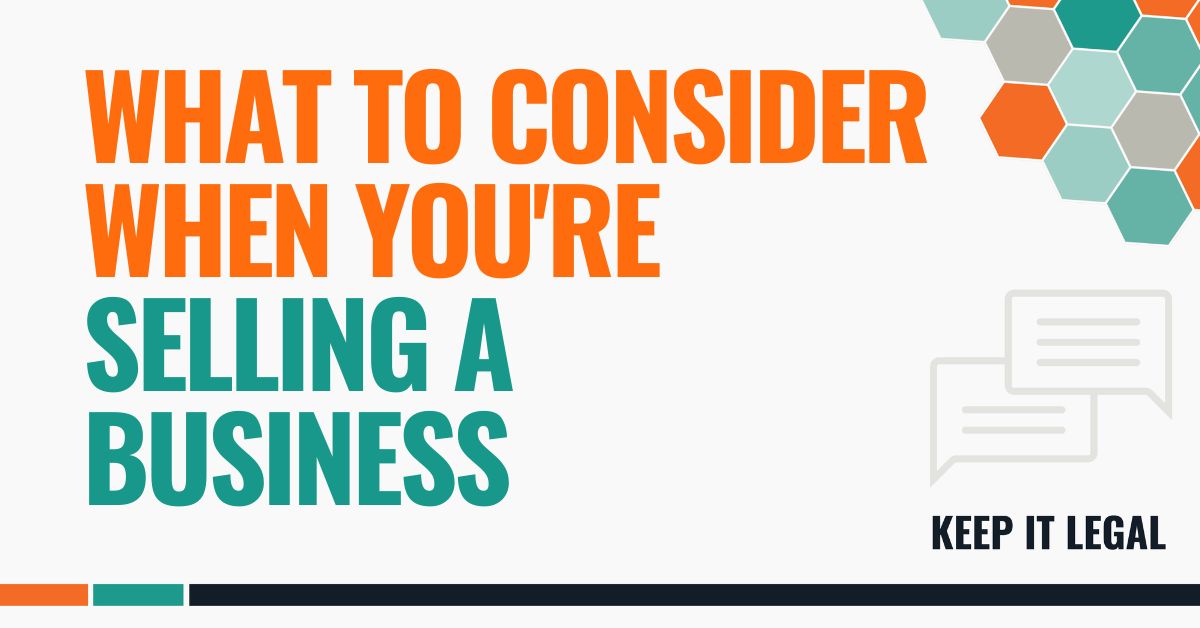Last year, I wrote a blog post called “What To Consider When You’re Buying a Business“. But, of course, there are two sides to every transaction. Let’s take a look at the process of selling a business.
This post won’t cover the financial or tax aspects of selling a business. There are a lot of good resources out there to assist with those issues (my #1 piece of advice here is to hire a good CPA). Instead, we’re going to look at some of the legal points on the checklist. This is not a substitute for consulting with strategic legal counsel; rather, it’s an overview of some key points.
As with buying a business, the first question to ask is whether you are selling the assets (and, possibility, liabilities) of the business, or instead, if you’re selling the business entity itself.
Your business may have physical assets – everything from vehicles and equipment to paperclips – as well as intangible assets such as accounts receivable, brand names, trademarks, patents, leases, computer programs, customer lists, contracts, domain names, phone numbers, or trade secrets.
There are also liabilities to consider, such as accounts payable, warranty obligations, employment liabilities, potential lawsuits, and such.
Your business also probably exists as some sort of entity, such as an LLC or a corporation, which holds both the assets and liabilities.
So: are you selling the LLC/corporation, with all of the assets and liabilities included? Or are you selling some or all of the assets/liabilities?
Very often I find that in the case of a business purchase, the seller and buyer aren’t immediately on the same page about what exactly is being bought and sold, so it’s advisable to be very clear about this point upfront. Strategic legal counsel can be helpful in sorting out these issues.
When selling a business, some other important factors to consider are:
- Market value: Determine the fair market value of the business, taking into account factors such as revenue, expenses, assets, liabilities, and industry trends.
- Legal and financial due diligence: Conduct a thorough review of the business’s legal and financial records to ensure that everything is in order and to identify any potential liabilities. Your attorney can help with the legal side.
- Tax implications: Consider the tax implications of selling the business, including capital gains tax, income tax, and other relevant taxes. This should be discussed with your CPA.
- Transfer of ownership: Plan for the transfer of ownership, including the transfer of assets, liabilities, and employees.
- Business brokers and escrow agents: A business broker and/or an escrow agent can be valuable assets in the process of selling your company. However, in most cases, neither of these parties is strictly on your side. They are there to make sure the deal gets done, without looking out for your specific interests. So it’s always important to make sure you have your own legal representation.
These are just a few of the points to consider when you’re selling a business. If you have legal questions about the process of selling a business, feel free to be in touch with me.


